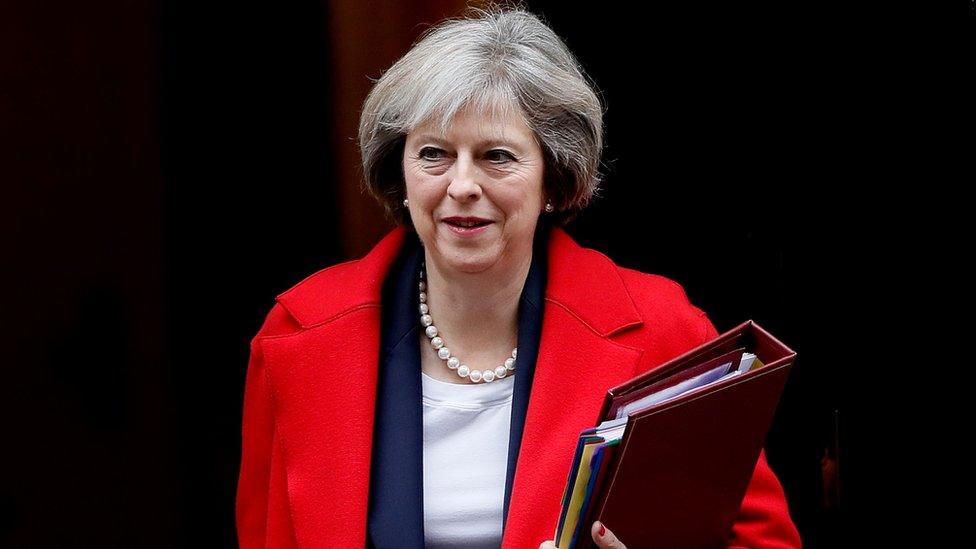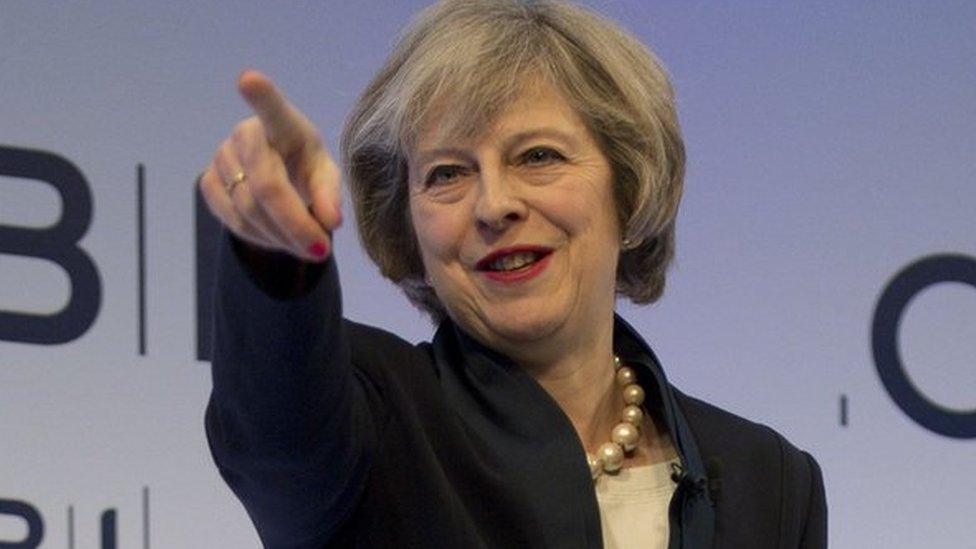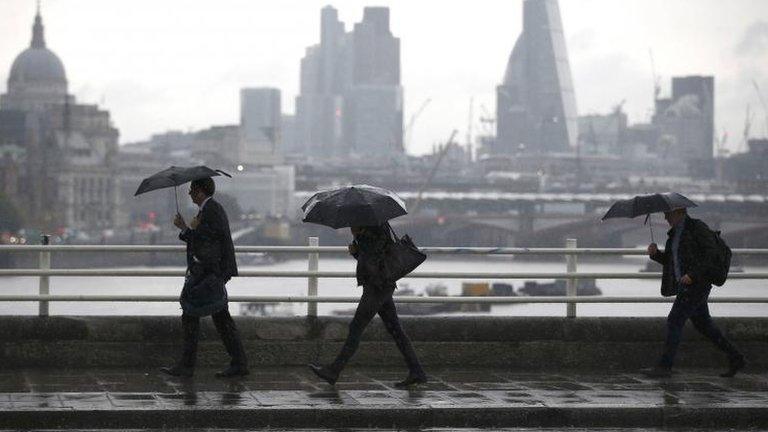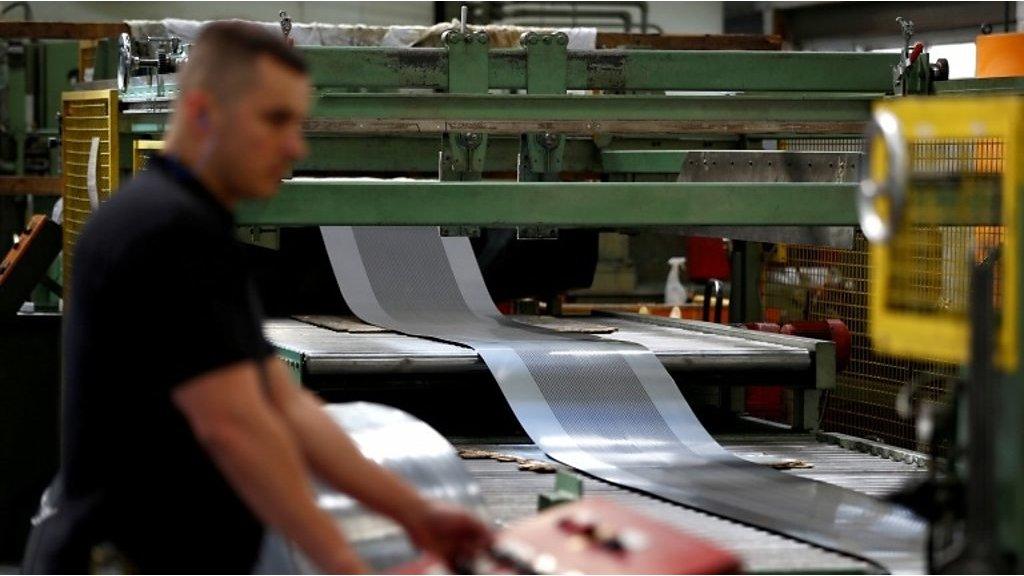Executive pay: Companies could be forced to reveal pay gap
- Published

Prime Minister Theresa May promised to tackle corporate greed when she entered Number 10
Britain's largest companies will have to reveal the pay gap between their CEOs and average workers, under new government proposals.
It is one of a number of measures being considered by the government in its consultation on curbing corporate pay.
Other proposals include improving the effectiveness of remuneration committees and votes on pay packages.
It comes after Theresa May appeared to row back from plans to force companies to appoint employees to their boards.
'Better decisions'
The government's green paper, published this week, aims to increase public trust in business in the face of the rise in anti-globalisation and anti-business sentiment.
Its proposals will include:
Forcing companies to publish pay ratios that show the difference in earning between the chief executive and average employee
Improving the effectiveness of remuneration committees and the extent to which they must consult shareholders and the wider company on pay
Introducing binding votes on executive pay packages
As part of the plan to reform remuneration committees, the government is considering whether employees' representatives should be given an advisory role.
Officials believe their input would spell out to the committee the impact on the wider workforce of high levels of remuneration for top executives.
In September trade union body the TUC said its research showed the average FTSE 100 boss was paid 123 times the average full-time salary, and that the median pay award of major FTSE 100 directors had risen by 47% in five years to 2015 to £3.4m.
As part of the proposed shake-up, civil servants have looked at measures being taken in other countries including the US, France and Australia.
A government source said: "Businesses are a pillar of our society, creating employment opportunities and contributing significantly to funding our country's public services.
"The UK has led the world in corporate governance, but our strong reputation can only be maintained if government and business regularly reviews and upgrades our governance.
"Good governance helps companies take better decisions, for their own long-term benefit and the economy overall - ensuring public trust in British business and making sure the UK is the best place in the world to do business."
Top talent
The publication of the green paper comes after Mrs May was forced to reject claims she had watered down plans for workers to have a say in how their companies are run.
She ruled out imposing the appointment of employees to company boards when she gave a talk to the CBI this week.
Days later the the Bank of England's chief economist, Andy Haldane, joined company chiefs to reject proposals for annual binding votes on pay and the publication of pay ratios.
The two ideas were among the prime minister's suggestions to address public unease about executive pay.
A report by the Big Innovation Centre, external think tank argued that a binding vote would mean Britain's top firms losing out on top talent.
It also said that pay ratios do not "lend themselves to valid comparisons between companies" and would likely add to misunderstanding over executive pay as well as potentially creating "perverse incentives".
Instead, the report argued for less complex pay structures, a "Fair Pay Charter" and giving shareholders more say on executive pay.
- Published25 November 2016

- Published24 November 2016

- Published21 November 2016
